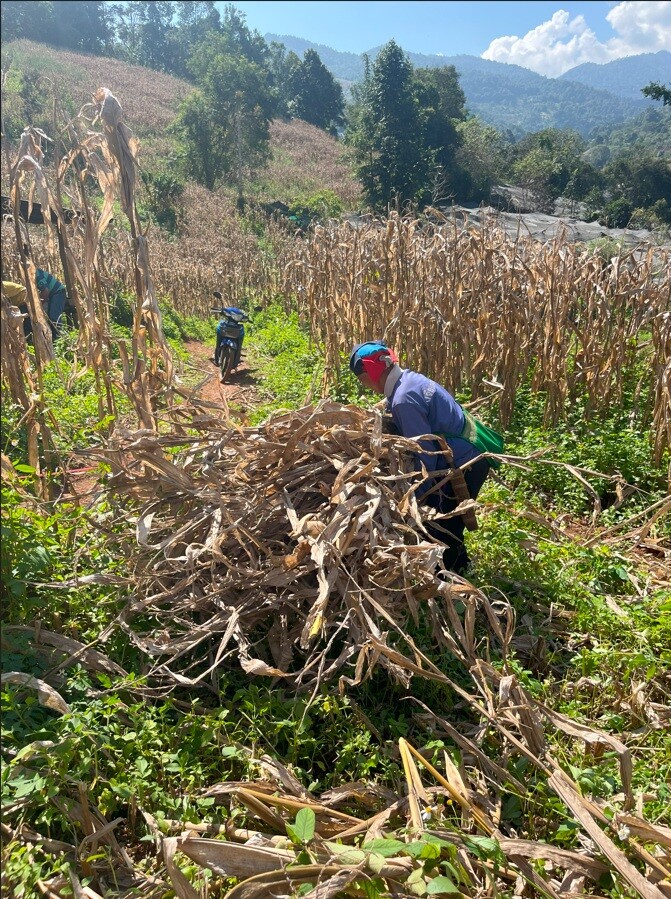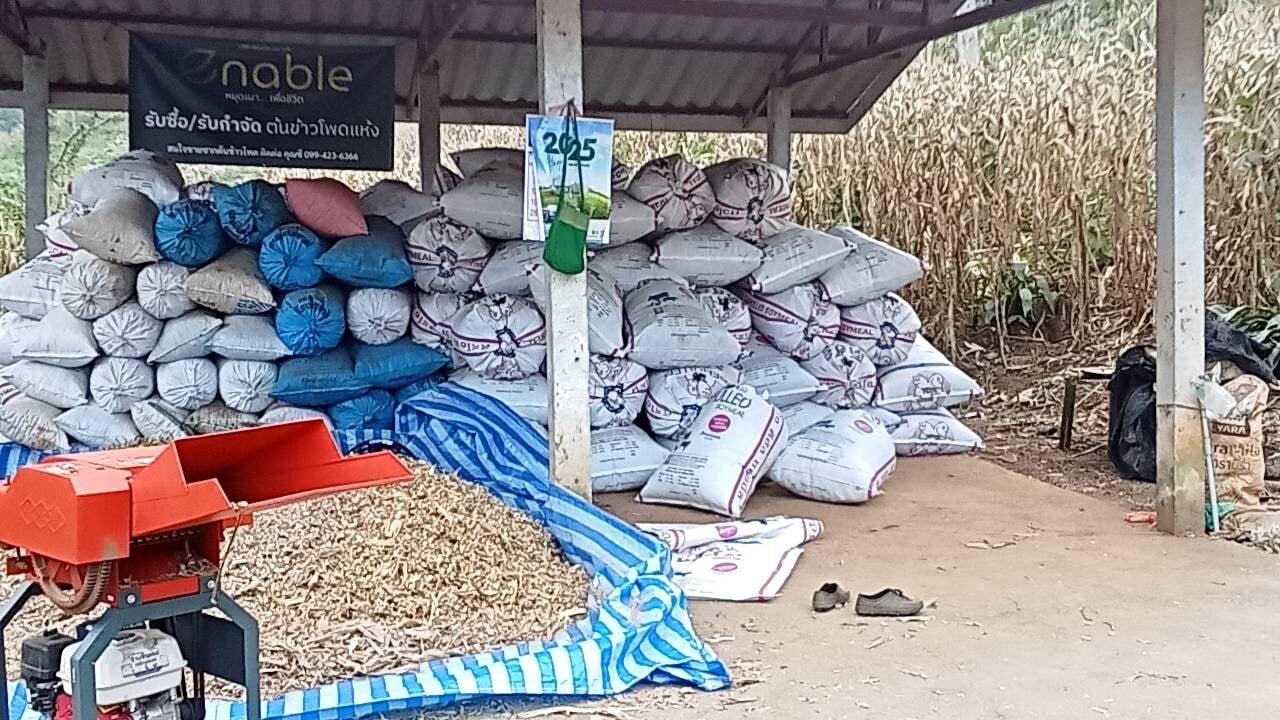![IMG_5529[53]](https://www.accend.earth/hubfs/IMG_5529%5B53%5D.jpg)
Enable Earth
- Standard: Puro.earth
- Methodology: Biochar
- Rating: AA-BBB (Sylvera)*
- Credit Type: CORC 100 +
- Facility ID: 423775
- Location: Chiang Rai Province, Thailand
- Year of first issuance: 2027
- Status: Development
- Audited by: N/A
- Spot Inventory: No
- Forward Inventory: Yes
Description
Enable Earth is a pioneering biochar initiative based in Wiang Pa Pao District, Chiang Rai Province, Thailand—an area severely affected by seasonal crop burning and PM2.5 pollution. The project targets local corn residues (stalks, leaves, and small cobs) that are otherwise openly burned and transforms them into stable carbon via pyrolysis. The project also aims to bring innovation and income to rural farming communities.
Feedstock
The feedstock is corn residues (stalks, leaves and small cobs) supplied by local corn farmers.
Application
The biochar is mixed with compost and distributed to farmers as a sustainable alternative to harmful chemical fertilizers. To raise awareness of biochar’s benefits, the project will set up pilot plots near the facility to showcase its impact on soil health and crop productivity. Collaboration with local universities and organizations will drive innovation, while advanced monitoring technologies, including AI and satellite data, will track and optimize biochar application performance.
Co-benefits
Soil and Agricultural Improvement
- Demonstrates the benefits of biochar and compost to replace chemical fertilizers, improving soil health and reducing environmental harm.
- Encourages local farmers to adopt sustainable practices, lowering dependency on harmful chemicals.
Educational Support
- Supports higher education opportunities for local children, enabling them to adopt better farming techniques or pursue other professions.
Economic Opportunities
- Promotes economic growth by encouraging farmers to diversify into higher-value crops.
- Provides opportunities for upskilling and less labor-intensive work.
Clean Technology Adoption
- Introduces environmentally friendly technologies to convert corn residues into biochar, reducing open-air burning and PM2.5 pollution.
- Spurs innovation in agricultural and industrial processes for better residue utilization.
Air Quality and Community Health
- Reduces PM2.5 emissions caused by open burning, contributing to improved air quality in Northern Thailand.
- Offers a scalable model to improve regional air quality.
Responsible Farming Practices
- Creates a traceable system to reward and incentivize farmers who avoid residue burning.
- Encourages sustainable corn production practices across the animal feed value chain.
Ecosystem Restoration
- Restores soil quality to enable the growth of perennial trees, mitigating deforestation impacts.
- Aims to prevent floods and other climate change-related challenges by improving land use.
Additionality
Carbon baseline: The baseline scenario involves the open burning of corn residues, which leads to immediate CO₂ and PM2.5 emissions.
Financial additionality: Carbon revenue is essential for project viability. The sale of carbon credits will finance CAPEX, logistics, training, and biochar application, enabling a business model not otherwise economically viable.
Regulatory additionality: The project is not required by existing laws, regulations, or other binding obligations, demonstrating its additionality in contributing to sustainability and climate goals.
* Sylvera has assigned carbon credits issued by Enable Earth a Sylvera Estimated Rating
Range of AA-BBB as of 11/09/2025. For information on how to see the live Sylvera
Estimated Rating, please see www.sylvera.com.
Sylvera Estimated Ratings are designed to help prioritise projects for further due diligence
using a y on a combination of 4 core scoring pillars: Carbon Score, Additionality, Permanence,
and Co-Benefits.
Disclaimer:
Sylvera Estimated Ratings are statements of opinion and not statements of fact, investment
or financial advice, endorsements or recommendations to take or not take a particular action.
Sylvera expressly disclaims all warranties and liability to all users and viewers of Sylvera data.
Estimated Ratings should not be used to underpin investment decisions. See the Sylvera
Ratings User Guide for further information on the differences between an Estimated Rating
and a Full Rating.

